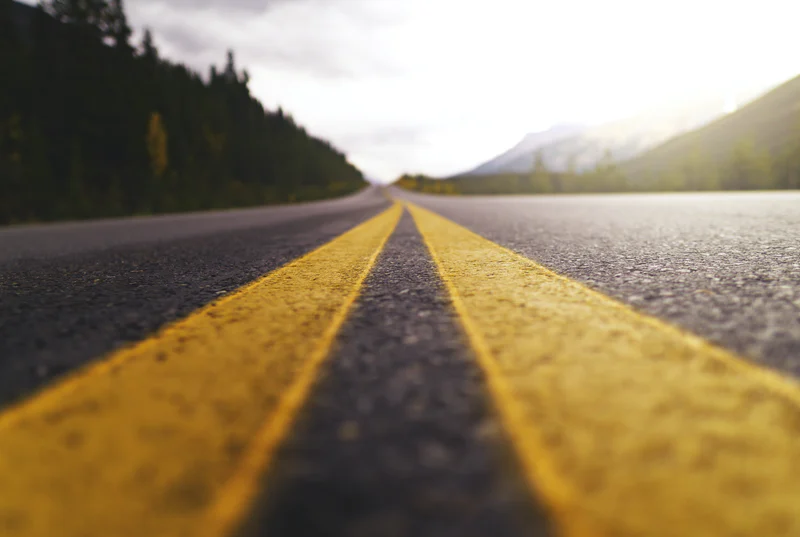
My parents enjoyed the outdoors and taking us kids on adventures no matter how loudly reluctant we were. We strolled, hiked, rode bikes and took out a canoe from time to time. Imagine our parents’ delight when our grandfather sold our family his boat, a 14-foot, 1980 Double Eagle, in pristine condition. It boasted orange decking, brown leather chairs and an off white hull — an adventurer’s dream. A six-pack of chunky, bright orange life jackets later and we were on our way.
All four of us were helpless casualties of their meanderings and self-guided boat instruction. The Double Eagle made them feel limitless with the wind in their hair (at way too many knots an hour) and their newfound capacity for exploration, they had the whole natural world at their fingertips. The Double Eagle was a patient teacher, rather built well. That’s the thing with boats — you learn as you go, and learn they did, thank goodness she was sturdy, built for unyielding adventure.
We hit a sand bar in one lake, sputtering us all right back into reality, our fate resting in the goodness of passersby to free our boat. We also ran out of gas, more than once if I recall correctly. Thankfully, we had oats and boaters, in general, are kind people and they came to our rescue. Our parents eventually learned the exact limitations of that boat and all of our sanity by putting them both to the test. Perhaps there was no other way — in the words of T.S. Eliot, “Only those who risk going too far can possibly find out how far they can go.”
We would pull up and jump ashore beside other boats more sleek and more modern coloured, it’s riders sported neoprene life vests in fashionable colours, I’d have given anything in those moments for a trendier neoprene life vest.
The trips started out small, just a few hours searching for everything we had been missing out on while boat-less. We found elusive beaches, hidden waterfalls and spent countless hours beach-combing for “jewels” — strangely shaped wood that had the potential to be made into a table leg or a lamp by my dad, who had very little extra time for projects. We would cheer him on, often adding our own finds to his growing pile. The wood secured the best seats on the boat and it became our responsibility to fit into the boat as best we could. He would lovingly place each piece of carefully curated treasure in a heap beside his shop. He’d eventually move the pile from house to house, very few pieces of wood ever reaching their full potential. Perhaps the pieces of wood were ok with that though, having enjoyed an extra moment of admiration, far after they had provided shade or danced in the breeze.
During one of our expeditions we landed on the shore of a boat-in only campsite. There were three groomed sites for tents hidden in the forest behind, a large beachfront and an outhouse. It was free, off-grid and involved the boat — our parents were thrilled.
Camping sites, back then, were first come, first served and we would drive around with a vehicle packed to the hilt with camping gear, tarping supplies, a large assortment of treats and four very hopeful children. No vacancy signs, confirmed by speaking with site attendants filled us with dismay as we drove with growing urgency, further and further from home and later and later into the day. How much trickier it would be to ensure the boat-in site would be ours, it was imperative we beat the weekend rush.
We never pared down our camping supply list, on account of needing to boat in all of our supplies, in fact we brought more. My dad packed enough two by fours and a sheet of plywood to set up a very elaborate beachfront tarp system, complete with level picnic table and of course an ample supply of firewood. We would need to do two trips. Weighed down, the trip took 45 minutes to an hour depending on the moodiness of the water. When we picked up speed, the rear of the heavily-packed boat often threatened to sink below the surface; it was my brothers job to hop up onto the bow. Those of us who could, clambered forward and the rest of us just leaned and held our breath, hoping we could displace enough weight to not go under. Somehow, our ambitious packing never caused our capsize, though in one terrifying moment, my brother and his friend were both washed into the water, but just once.
We had enough supplies to fill the beach, due to my dads over-sized tarps and furniture made on site. To onlookers, I’m sure it seemed as though we had always been there and were leaving no time soon and so we never had to share the camping area. I’m quite sure the small number of unruly, bedraggled children had nothing to do with it.
Upon arriving at our explorers paradise, the skies broke open and the rain poured down. We set to work unloading and setting up our tents. The outstretched arms of the cedar trees offered very little protection from the rain. We longingly joked about abandoning the whole trip for a warm hotel, but we grew up on a budget, dad had already left for the second load of supplies and it was already growing dark. We were just barely able to see beyond the branches of the trees, the rain making the lake’s surface come to life. We fumbled through set up and took shelter inside the kids’ tent. We climbed into our sleeping bags, clicked off the flashlight and settled in to wait for morning.
After what felt like forever, we heard the trusty hum of the Double Eagle’s motor. Our dad —an experienced camper—startled us all as he walked around the tent pushing on the walls, “stay away from the walls to stay dry,” he warned. We huddled together, with our backpacks, in the middle of the tent. Sleep overtook us all as we imagined what tomorrow’s light might bring, listening to the falling rain on the tent.
We excitedly unzipped the tent and stumbled out to find a much more favourable day for camping. We played amongst the trees, on the sandy beach and cooled off in the frigid water. We enjoyed tubing, holding on for dear life until we plunged into the cold water that smacked like concrete and took our breath away. “Faster!” We screamed.
As the day warmed, an old man kayaked over to our campsite, two smaller kayaks in tow. A tiny bathing suit showed off his sun weathered skin, his eyes appeared so large behind the thick glasses he wore on a strap fastened behind his head. He may or may not have been a little “off,” said my mom who prided herself on her stellar intuition and never took her eyes off of us as he hoisted us in and out of his kayaks, summer after summer. I’m not sure if it was politeness or curiosity that led her to allow us to follow him to his campsite a short hike down the beach. She followed closely. He was set up to stay the majority of the summer in an incredible fortress made of the wood he had collected from the beaches. These sticks were surely enjoying their second life; I’m sure he was a good guy.
I admire my parents resolve for adventure. Taking four whining, heavily-resistant children into the elements is not for the faint of heart. I don’t recall any of us kids ever loving the boating part of these escapades, though when our feet hit the ground again, as we reached our destination, we were happy explorers.
My brother-in-law recently rewired the motor at my mom’s request, and we all cinched up our orange life jackets extra tight (pretty sure those were original), sat our kids on the brown cracked leather seats and took a ride on the Double Eagle, for old time’s sake, fondly thinking back on all the trips we survived.














